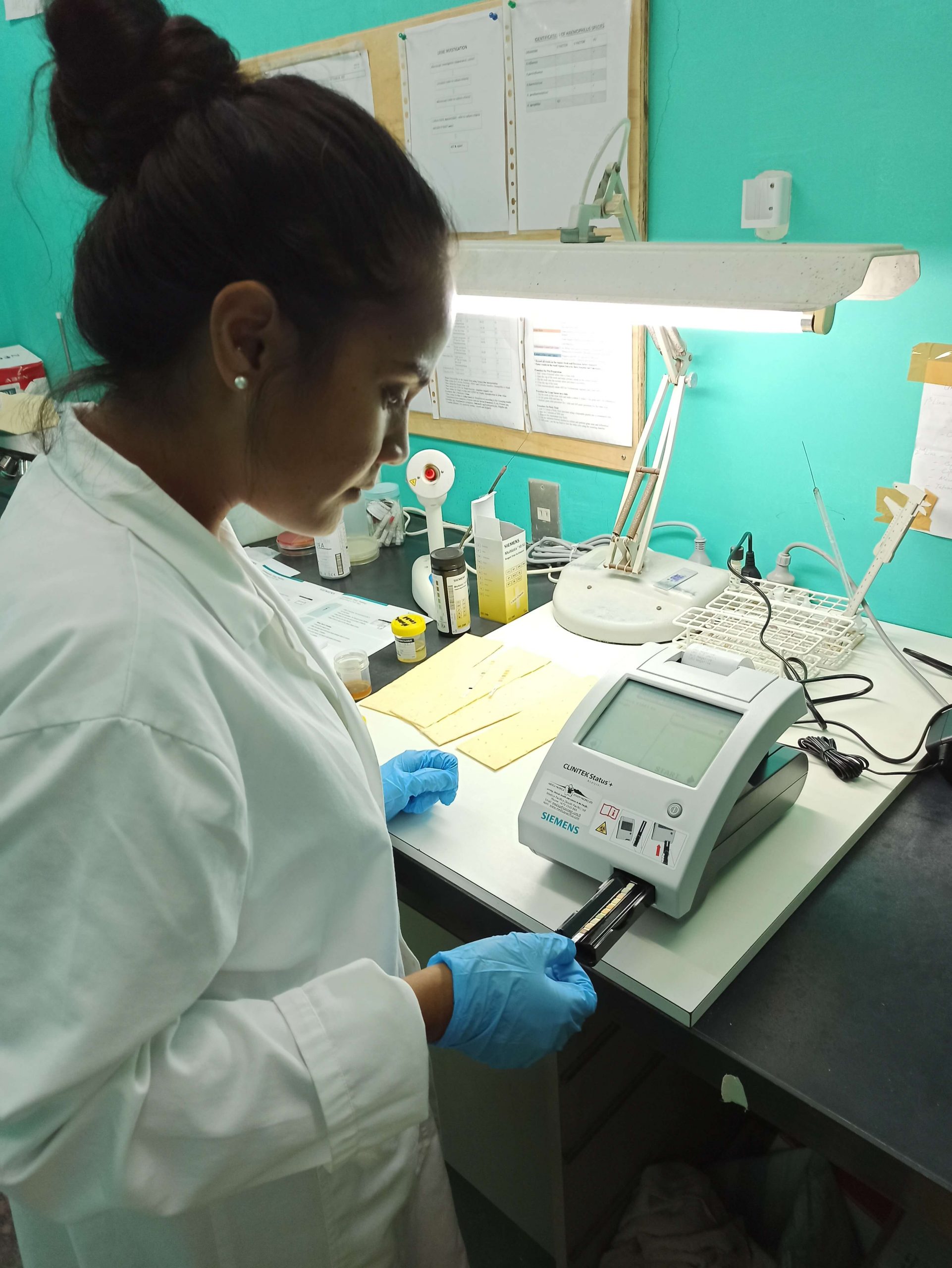The Pacific Community’s Public Health Division works in the region to improve, promote, and protect the health of the Pacific Island people.
This year has been challenging thus far as the Pacific region witnessed the COVID-19 pandemic take precedence. The Public Health Division (PHD) from the onset of the pandemic, has actively engaged with its member Pacific Island Countries and Territories (PICTS) supporting COVID-19 preparedness and response.
The division continues to provide technical support through non communicable diseases (NCD), clinical services, infection, prevention and control, laboratory and surveillance, risk communications, trainings, and biomedical services.
Evidence have showed that people with underlying health conditions such as diabetes or heart diseases are at greater risk to develop severe illness from of COVID-19, The NCD Program in collaboration with development partners, led in supporting countries to strengthen implementation of the Pacific NCD Roadmap and monitoring the implementation through the Pacific Monitoring Alliance for NCD Action (MANA) Dashboard. Amid the challenges of COVID-19, through support from NCD Programme, PICTs continue to strengthen policies and legislation, engage stakeholders and communities, build capacity and resources, and implement behavior change interventions to scale up actions on NCDs.
The Clinical Services Programme has worked closely with PICTs to strengthen and improve capacity of Intensive and Critical Care, Radiology and Emergency Care by facilitate online trainings to clinicians, radiology, and nursing health workers throughout the region.
Nurses throughout the Pacific Islands were supported by the European Union and Australian Department of Foreign Affairs and Trade to undertake specialized courses in critical care and perioperative care funded. To complement the training SPC also supported the strengthening of critical care facilities service provision, biomedical equipment, and consumables as well as biomedical engineering support for technicians in country.
Infection, prevention, and control (IPC) is recognized as an essential requirement for COVID-19 preparedness and response. In collaboration with WHO, SPC has led work in this area, with the production of technical guidance’s, and the updating of the Pacific Public Health Surveillance Network (PPHSN) Regional Infection Prevention and Control Guidelines 2021, that has been used by PICTs to develop their own national IPC guidelines. Solomon Islands, Vanuatu and Fiji for example have finalized their IPC guidelines.
SPC has worked closely with the Laboratory teams in the PICTs to improve and strengthen COVID-19 testing capabilities. GeneXpert testing machines and cartridges were provided to PICTs complemented with training support to enhance in-country capacity for molecular (RT-PCR) testing for COVID-19. PICTs lab scientists were trained by on how to conduct COVID-19 testing, a regional monitoring system was established to monitor quality of COVID-19 testing in PICTs and status of test reagents supplies. The SPC laboratory team has also provided on-going guidance on equipment maintenance and facilitating sharing of testing supplies between countries based on information collected from the COVID-19 monitoring tool.
SPC’s Health Surveillance, Preparedness and Response Programme continues to monitor and share data and innovative visualization products on the COVID-19 situation in the region, while providing technical support and training capacity development to PICTs through the Pacific Public Health Surveillance Network, in the areas of epidemiology, surveillance, contact tracing, infection prevention and control, risk communication and community engagement, and response, to epidemic and emerging diseases outbreaks, including COVID-19. In addition to supporting PICTs with their COVID-19 surveillance and response, SPRP was able to finalize and launch the, in collaboration with WHO, manual on surveillance and control of Aedes vectors in the Pacific, that will serve as a reference for upcoming trainings aiming at reducing the burden of mosquito borne diseases, such as dengue fever, across the region. SPRP is also implementing the DFAT funded Pacific Evidence Informed Policies and Programs (Pac-EVIPP), aimed at strengthening regional health security.
PHD’s efforts and ongoing work in the region is supported and funded by the European Union (EU), Agence Française de Développement (AFD), Australian Department of Foreign Affairs and Trade (DFAT), the New Zealand Ministry of Foreign Affairs and Trade (MFAT) and United States Agency for International Development (USAID).
The PHD continues to work in collaboration with partners and donors in the Pacific region to provide PICTs with support geared towards improving the health of the Pacific people.
For more information, please visit www.spc.int or phd.spc.int

One Comment “WHO: Pacific islands facing a bumpy road toward the ‘Healthy Islands’ vision”
Comments are closed.